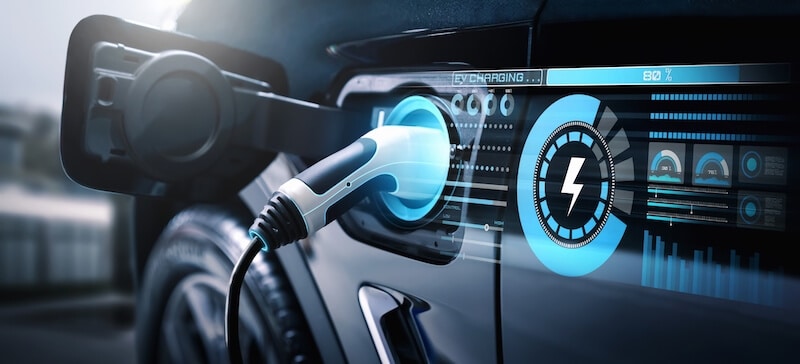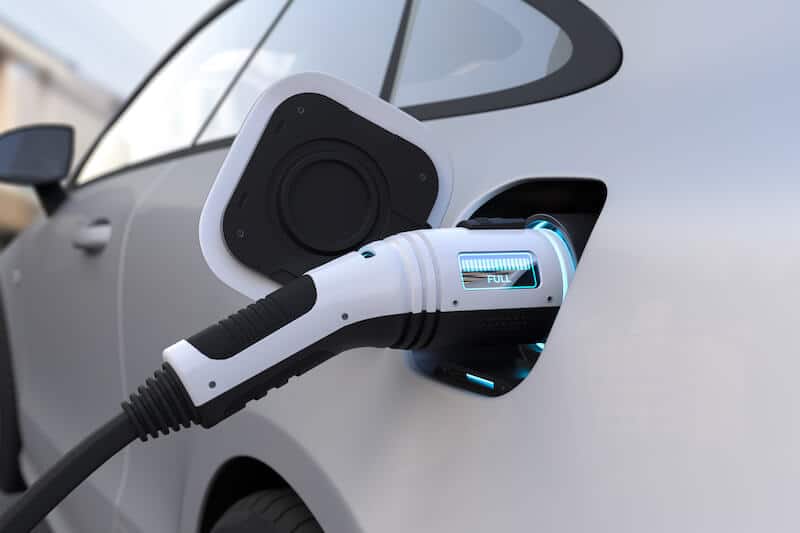How Logistics Support the Growth of EV Market

In the world of automobiles, a dramatic shift is underway. The electric vehicle (EV) market is now accelerating rapidly, driven by a global push for environmental sustainability. Advancements in battery technology, and increasing governmental support. According to Goldman Sachs Research, EVs are expected to make up about half of new car sales worldwide by 2035, and soar to about 73 million units in 2040, up from around 2 million in 2020. However, the rapid expansion of this market wouldn’t be possible without a crucial and often overlooked player: logistics. As a leader in Time Critical logistics, Royale International has been instrumental in this EV transformation.
Powering the EV Market
The production and distribution of EVs is at the central of the trend. Their manufacturing involves a complex supply chain due to the unique automotive components they require. Such as lithium-ion batteries and electric drive units. These parts, sourced from different parts of the globe, often need to be shipped on tight schedules to keep up with escalating production demands. In such circumstances, the importance of Time Critical logistics is underline.
Royale International proficient in delivering these automotive components swiftly and safely. Leveraging their extensive global network and customisable Time Critical logistics solutions. They ensure a smooth, uninterrupted flow of materials, enabling EV manufacturers to maintain optimal production levels. This logistical competence becomes increasingly important. As governmental policies like the U.S.’s Inflation Reduction Act (IRA) aim to promote the domestic assembly of EVs, necessitating more localised and responsive Time Critical supply chains.

The Battery Challenge
The lithium-ion batteries that power EVs are particularly challenging to transport due to their size, weight, and safety regulations. Moreover, these batteries degrade over time, which makes efficient, rapid transportation essential.
As a specialist in Time Critical solutions, Royale International successfully navigates these challenges. Their expertise in handling delicate and high-value components ensures that batteries reach their destination in perfect condition, ready to be installed in the next generation of electric vehicles.
Infrastructure Support
The growth and success of the electric vehicle (EV) market is closely tied to the infrastructure supporting it, with charging stations playing a vital role. For EV adoption to continue its upward trend, charging stations must be readily available and strategically placed.
They must be located in areas where they are accessible and convenient for EV users, such as urban centers, residential areas, and along major transportation routes. This requires an in-depth understanding of EV usage patterns and consumer behavior. Furthermore, the ability to coordinate with various stakeholders, including city planners, utility companies, and property owners.
Logistics also play a role in the maintenance and upgrading of these charging stations. As technology evolves and the demand for EVs grows, these stations will need regular servicing and potential upgrades, requiring further logistics planning and coordination.
The Future Roadmap
As the EV market continues to grow, so too will the demands on logistics. Future challenges include managing the recycling and disposal of used lithium-ion batteries, further expansion of charging infrastructure, and navigating the logistics of self-driving electric vehicles.
In conclusion, Time Critical logistics quietly underpins the expansion of the EV market. As this happens, Royale International, with over 30 years of experience in logistics for the automotive industry, contribute by ensuring the prompt and secure transportation of goods integral to the EV growth. As we navigate towards a more sustainable future, the significance of logistics in bringing this vision to life continues to grow, learn more: https://staging.royaleinternational.com/services/automotive/


